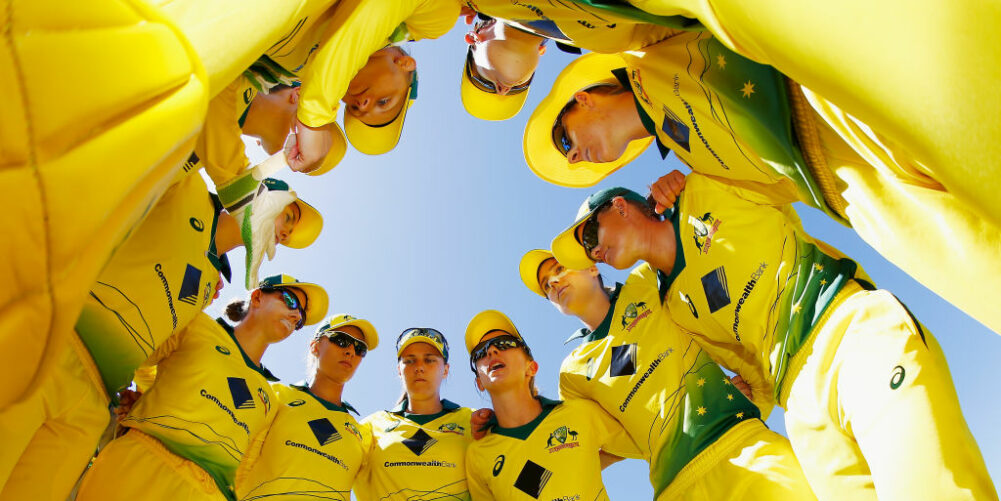By Tim Wigmore
On Sunday, England will begin their attempt to regain the Women’s Ashes when they meet Australia at a sold-out Allan Border Field in Brisbane. But England will not have to worry about how to get out Meg Lanning, Australia’s captain and arguably the finest batter in the history of the women’s game.
Yes, Lanning is only 25 years of age. But consider what she has achieved: 11 centuries, more than anyone else, in 63 ODIs, at an absurd average of 54.52. To put that in perspective, the great Charlotte Edwards scored nine ODI centuries in 180 innings.
The only two women with a higher batting average than Lanning played in the Seventies and Eighties.
All of this emphasises the task facing Rachael Haynes. She has had a yo-yo international career, flitting between being in the Australian team and out of it. If her ODI record – 860 runs at 30.71 apiece, with seven half-centuries but no hundreds in 31 innings – is respectable enough, it is also a world away from Lanning’s record. Yet now Haynes is replacing Lanning as captain and, while she is at it, attempting to make up for Lanning’s runs, too.
“She’s one of the best batters in the world so any team that loses a player of that calibre, it’s hard to replace them,” Haynes says. “One of the great things has been how our team has responded to that. We’ve seen some fantastic performances in our domestic competition – the likes of Elyse Vilani, Nicole Bolton and Beth Mooney.”
At the start of the Australian summer Haynes has stepped up, too. In her first two innings for the New South Wales Breakers in the domestic 50-over competition, Haynes scored 103 not out and 83 from No.3, two scores that suggest she can improve on her middling international batting record.
“I definitely feel like the best is yet to come for me,” she declares. “I know my game a lot better than when I was first selected as a younger player. I feel really confident that I’ve got the skill required to perform at this level.
“You’re always under pressure when you’re playing international cricket, it can be a pretty cut-throat environment. I’ve had a really good lead-in to this summer.”
Along with runs, Haynes has had her elevation to the captaincy to toast. It is a curious situation.
Haynes had not been picked for Australia for four years until returning in February, with an assured half-century in New Zealand. It was an innings that earned her a berth in Australia’s World Cup squad, but not their first choice XI.
Only, when Lanning’s injury opened up a berth in the side, Haynes was not just picked; she became captain too, over vice-captain Alex Blackwell. Australia won both matches in which Haynes played, and led, during the World Cup, against South Africa and Pakistan. Now, Haynes’ ultimate reward is to lead for the entire Ashes series, in lieu of Lanning, who is undergoing shoulder surgery.
It is a daunting task although Haynes does not seem overwhelmed. At 30 she is mature, and has abundant captaincy experience – she is one of only two women to have captained both Victoria and New South Wales, although, bizarrely, she is now vice-captain for New South Wales under Blackwell, who will be Haynes’ vice-captain during the Ashes series.
“I’m well-prepared as a leader. I don’t feel like I’m going into this series with it being my first time leading a team. I’ve experienced success as a leader and am feeling confident I can lead this team well – it’s something that I’m more than capable of doing. All my cricket experiences and leading various teams along the way will definitely help.”
What is Haynes’ style of captaincy? She is considered an aggressive leader in the mould of Lanning, and hence the least disruptive option.
“I’m someone who really enjoys the tactical side of the game and really making sure we’re well-planned and prepared for our opposition,” Haynes says. “There won’t be anything too drastic or out of the box. Some of our plans and what we’re looking to do might be a bit different”
Just as it will fall to Australia’s whole team to replace Lanning’s runs, Haynes says it will fall to the whole group to replace her captaincy. “There’s a great mix of leaders within the group. There could have been any number of them who could have been selected as captain. I’m very honoured that it will be me.”
For Australia, the Ashes looms as a chance to reassert their dominance in the game, after an underwhelming World Cup defence in which Australia lost to England, were shocked by India in the semi-final and, by their high standards, played some rather insipid cricket.
“We’re a really good team who’s played some very good cricket over the last 12 months. Unfortunately things didn’t go exactly according to plan at the World Cup,” Haynes reflects. “It was disappointing to get knocked out in the semi-final. In a big tournament like that you certainly go there wanting to win it but we came up against an India team who played exceptionally well.
“We’ve reviewed that as a squad and have pretty much moved on. You can’t afford to get bogged down in the past. We’re just looking forward to getting stuck in.”
And so to the odd dynamics of one of the most claustrophobic series in sport. Both sides play against each other frequently, and play alongside each other every year in the Kia Super League and Women’s Big Bash.
“We’ve played a lot of cricket both with and against each other. The sides know each other very well so I don’t think there’ll be too many surprises in terms of how people play or new people coming into teams. It really will come down to who executes best and is able to adapt to conditions. It should be a really hotly contested series.”












